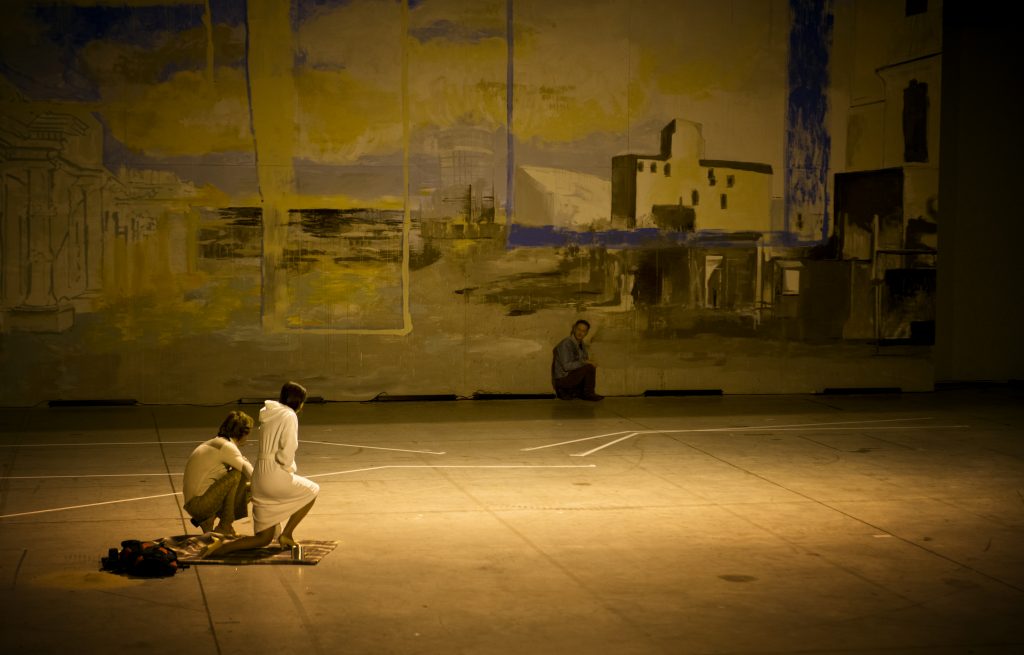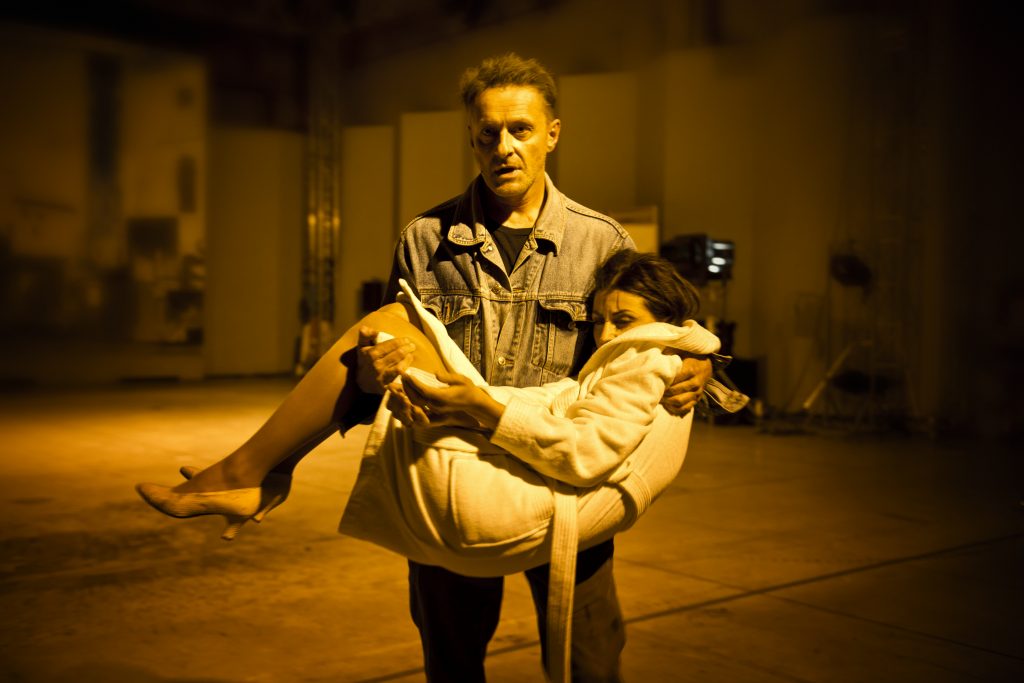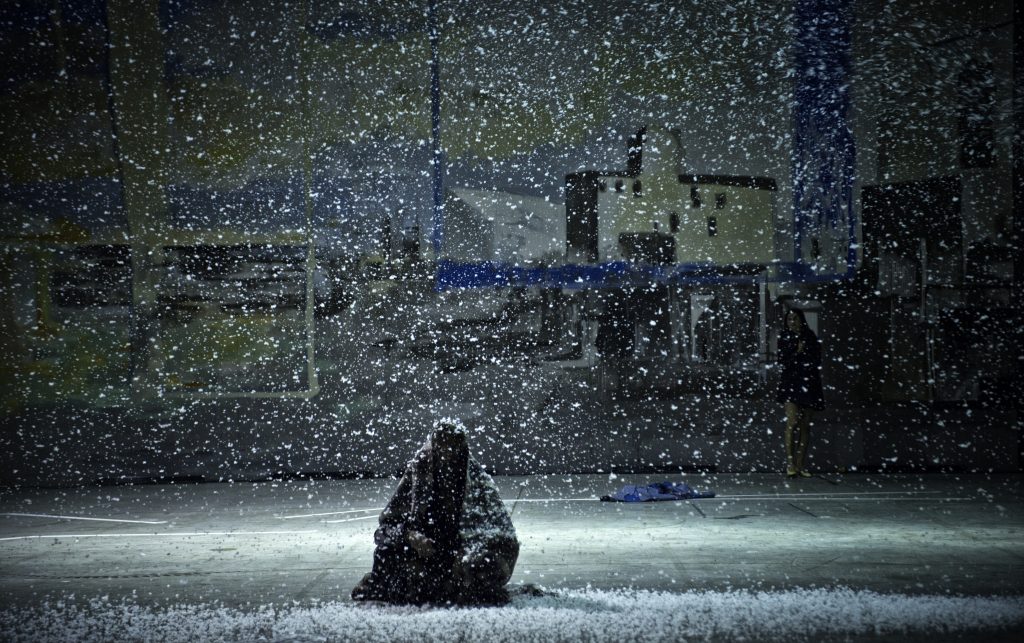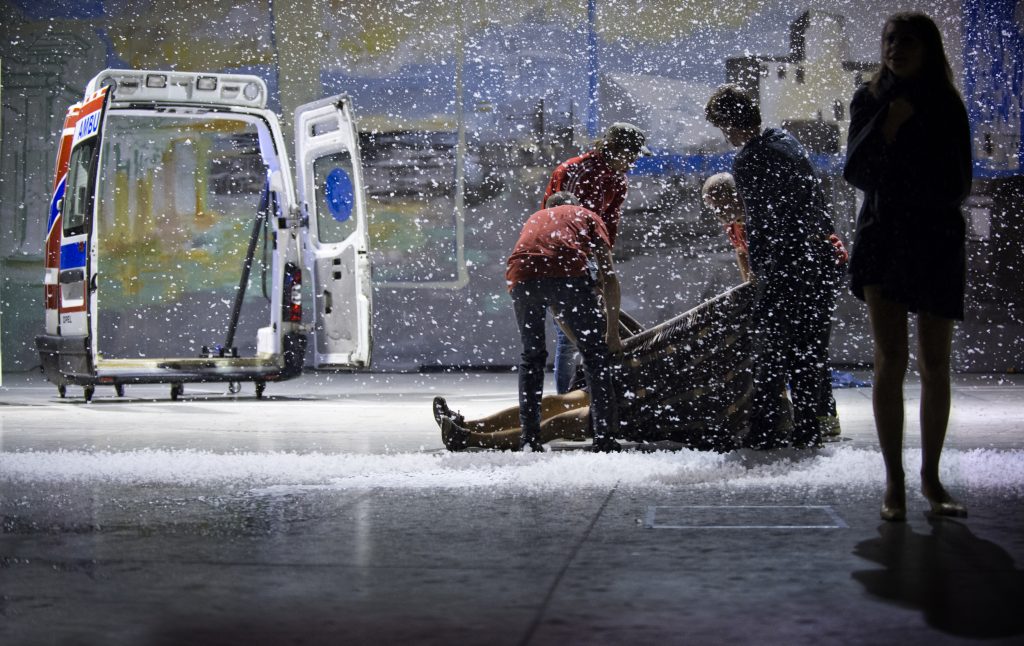Events
Tomasz Śpiewak
Directed by:Michał Borczuch
DIRECTOR'S ASSISTANT:Radosław Mirski
II DIRECTOR'S ASSISTANT:Jędrzej Piaskowski
Cast:Bartosz Gelner
Marek Kalita
Sebastian Łach / Paweł Smagała
Marta Ojrzyńska / Ewelina Żak
Piotr Polak / Jan Sobolewski
Jacek Poniedziałek
Halina Rasiakówna
Krzysztof Zarzecki
Dorota Nawrot
SCENOGRAPHER'S ASSISTANT:Weronika Biernat
Music:Bartosz Dziadosz „Pleq”
Lights:Katarzyna Łuszczyk
LANGUAGE CONSULTATIONS:Karolina Porcari
MURAL:Krzysztof Mężyk, Ludmiła Woźniczko
MAKEUP:Monika Kaleta
PREMIERE:24.09.2014
The following pieces were used in the performance:Last interview with Pasolini by Furio Colombo and Gian Carlo Ferreti, published by Avagliano Editore. Copyright © by Avagliano Editore
Photo of Wanting a Meal by Kevin Carter Copyright © FotoChannels.com/Corbis/Kevin Carter
Illustrative music composed for the performance by Bartosz Dziadosz
Cha cha cha music: Carlo Rustichelli
L'uomo di Paglia music and words: Carlo Rustichelli
Indiana music and lyrics: James F. Hanley, Ballard Mac Donald
Singing in the Rain music: Nacio Herb Brown, lyrics: Arthur Freed
Michał Borczuch’s play, based on a text by Tomasz Śpiewak, is inspired by the lives of two historical figures, Oriana Fallaci (Halina Rasiakówna) and Pier Paolo Pasolini (Krzysztof Zarzecki). The icon of twentieth century political journalism who investigated all forms of political extremism and the Italian filmmaker and playwright fascinated with Otherness represent here two distinct worldviews and attitudes. Pasolini was murdered under mysterious circumstances and his body was found on the beach of Ostia, outside of Rome. Fallaci interviewed herself as she faced her own death. The director introduces Kevin Carter (Jacek Poniedziałek), the South African photographer and reporter renowned for his pictures of war and famine, who committed suicide, into the cultural landscape between these two figures. Borczuch uses these marginalized figures to create a stage world consumed with fears, obsessions and desires, from which the image of the titular Apocalypse emerges. And in an era in which Europe’s Other is channeled into the persona of the Islamic terrorist, The Apocalypse seems to refer mainly to a European identity crisis.
Partially improvised dialogue and exaggerated gestures and actions, pulsing to the rhythm of trance music composed by Bartosz “Pleq” Dziadosz, reveal the moral, spiritual, and ideological collapse of Europe, which the characters anticipated in their work. What links their concepts to the vision of the director of this piece, produced by Nowy Theatre, is undoubtedly the awareness that every period has its characteristic tensions and controversies. And current problems are not that much different from earlier times – still rooted in fanaticism, ideological blindness and fear of the Other.



